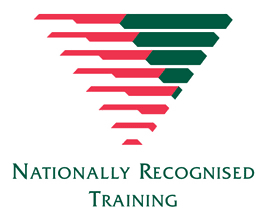- This is NOT a FREE TAFE course, government funding is NOT available. Payment plan options are available.
- Only Australian Citizens and Residents can apply for this course. Limited visa holders can be accepted pending a VEVO check. This provider is not CRICOS registered and cannot accept Subclass 500 visa holders.
Course Overview
Take your career in early childhood education to the next level.
The CHC50121 Diploma of Early Childhood Education and Care is the qualification that will enable you to build on your knowledge and experience, and move up into a variety of leadership roles.
This course develops your ability to foster holistic early childhood learning, development and wellbeing in children, implement strategies for the inclusion of all children, manage team effectiveness and much more.
The CHC50121 Diploma of Early Childhood Education and Care reflects the role of educators in early childhood education and care who work in regulated children’s education and care services in Australia.
Educators at this level are responsible for designing and implementing a curriculum that meets the requirements of an approved learning framework. With a Diploma of Early Childhood Education and Care, you’ll be successfully prepared to take on more senior roles in the early childhood education environment.
Who's It For?
Already working in childcare?
This course will provide you with qualifications to increase your responsibilities and help you turn your passion into a career filled with opportunities.
Ready to lead?
With a nationally recognised qualification, you’ll be able to put your experience into practice and play a greater role in leading others.
Looking to learn more skills?
Get your training through a flexible, online course that will significantly expand your skillset in just 18 months.
Job Outcomes
Potential career outcomes could include:
- Lead Educator
- Childcare Director
- Educational Leader
- Group Leader
- Assistant Director
What You'll Learn
- Analyse information to inform children’s learning
- Plan and implement children’s education and care curriculum
- Develop and use emotional intelligence
- Support the learning and development of teams and individuals
And much more!
Recognition

Study Method
- OnlineOnline delivery - online course content with the exception of assessments and work placement
- BlendedBlended delivery - both online course content and partial face to face requirements
- In-classIn class delivery - predominately face to face course content conducted at a specific location
- VirtualVirtual Delivery - Live and interactive classroom-style learning conducted completely online
Duration and Study Load
- Up to 18 months to complete 15 units of theory online.
Entry Requirements
Entry to this qualification is open to individuals who hold a:
- CHC30121 Certificate III in Early Childhood Education and Care or
- CHC30113 Certificate III in Early Childhood Education and Care.
Students’ skills and capabilities to undertake this training product will be assessed and advice on suitability will be provided during the pre-enrolment process.
Special Conditions
- Students must apply for their Working with Children check at course commencement.
- For mandatory work placement (280 hours), students must have access to a regulated education and care provider in Australia, with an appropriate range of work tasks and ratios of children, AND access to a qualified supervisor (i.e. a person who holds a Diploma of Early Childhood Education and Care or equivalent).
- Where required, we will assist you in organising a work placement location of your choosing.
Course Features
Flexible Online Study
Our courses are delivered online, so you can study whenever and wherever suits you.
Dedicated Student Support
Our Support Officers, Assessors and experienced education advisors will support you from enrolment through to graduation.
Industry-relevant Courses
Course material is developed in consultation with education experts to equip you with the job-ready skills and up-to-date knowledge required to support your career goals.
Work Placement
- 280 hours of practical assessment work in a regulated children’s education and care service in Australia.
Recognition of Prior Learning
Given that some students may already be able to demonstrate their competence in some units, a recognition of prior learning (RPL) assessment process may be available to students to recognise skills and knowledge that may have been gained through formal and informal training and/or learning, work experience and life experience.
Assessment
- Assessments will include a range of quizzes, knowledge questions and case studies. Students will also need to undertake workplace projects and observations and will be required to submit video evidence of their learnings
Subjects
About Foundation Education
Foundation Education provides students with access to quality vocational education alongside their sister brand, the Australian Institute of Personal Trainers (AIPT), and a robust network of industry partners all around Australia.
With courses designed by industry experts, students gain the knowledge and experience to graduate with job-ready skills that employers seek. Plus, students can learn at their own pace and place through flexible online study.
Offering a wide range of Certificate and Diploma-level courses across Early Childhood Education and Care, Education Support, Allied Health, Dental Assisting, Health Services and more, Foundation Education has a vocational study option to take you where you want to go.
The Foundation Education difference means:
- Flexible Online Study – Students can complete the theoretical component of courses online at their own pace.
- Industry Relevant Courses – Course material is developed in consultation with industry experts to provide students with the comprehensive skills and knowledge required to graduate job-ready.
- Dedicated Student Support – Our industry-experienced Technical Advisors, Assessors and Support Officers can support students from enrolment through to graduation.
- National Recognised Training – Every Certificate and Diploma offered is nationally recognised and accredited, meeting established industry needs and national quality assurance requirements.
Foundation Education is a Registered Training Organisation (RTO #22557)

